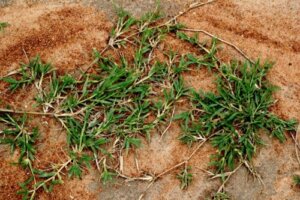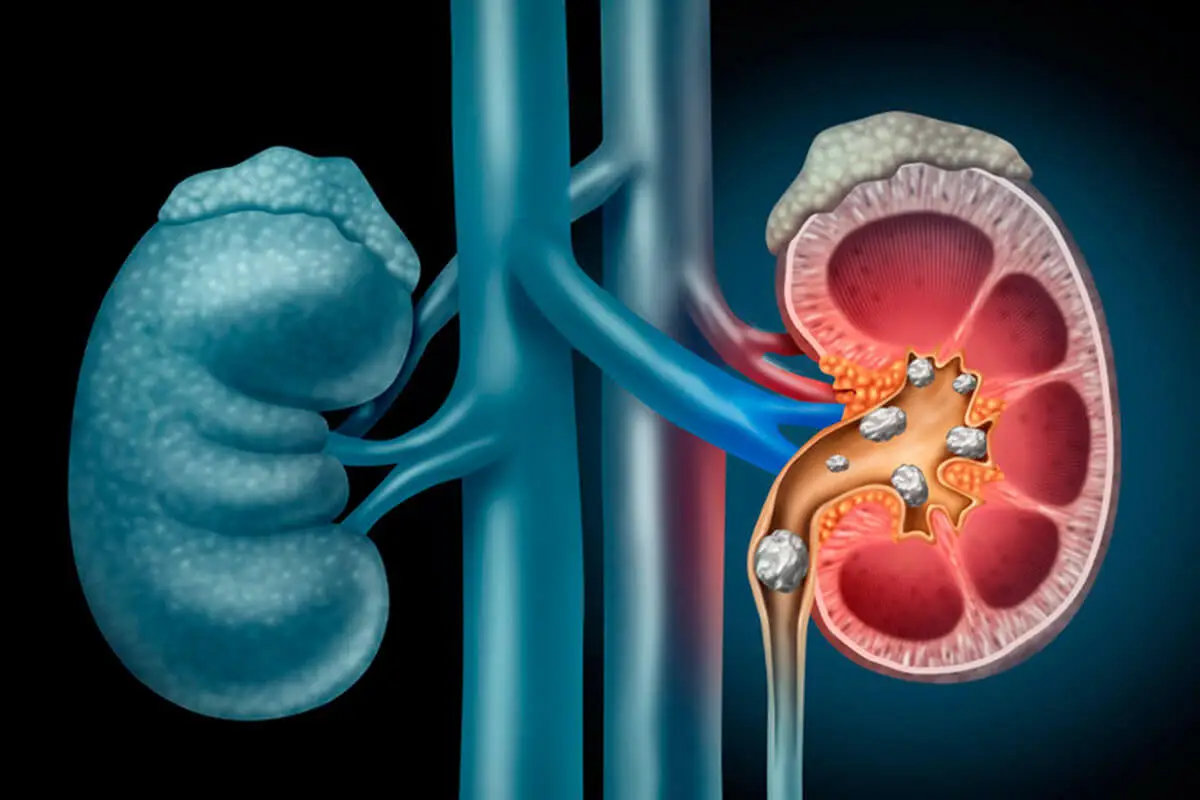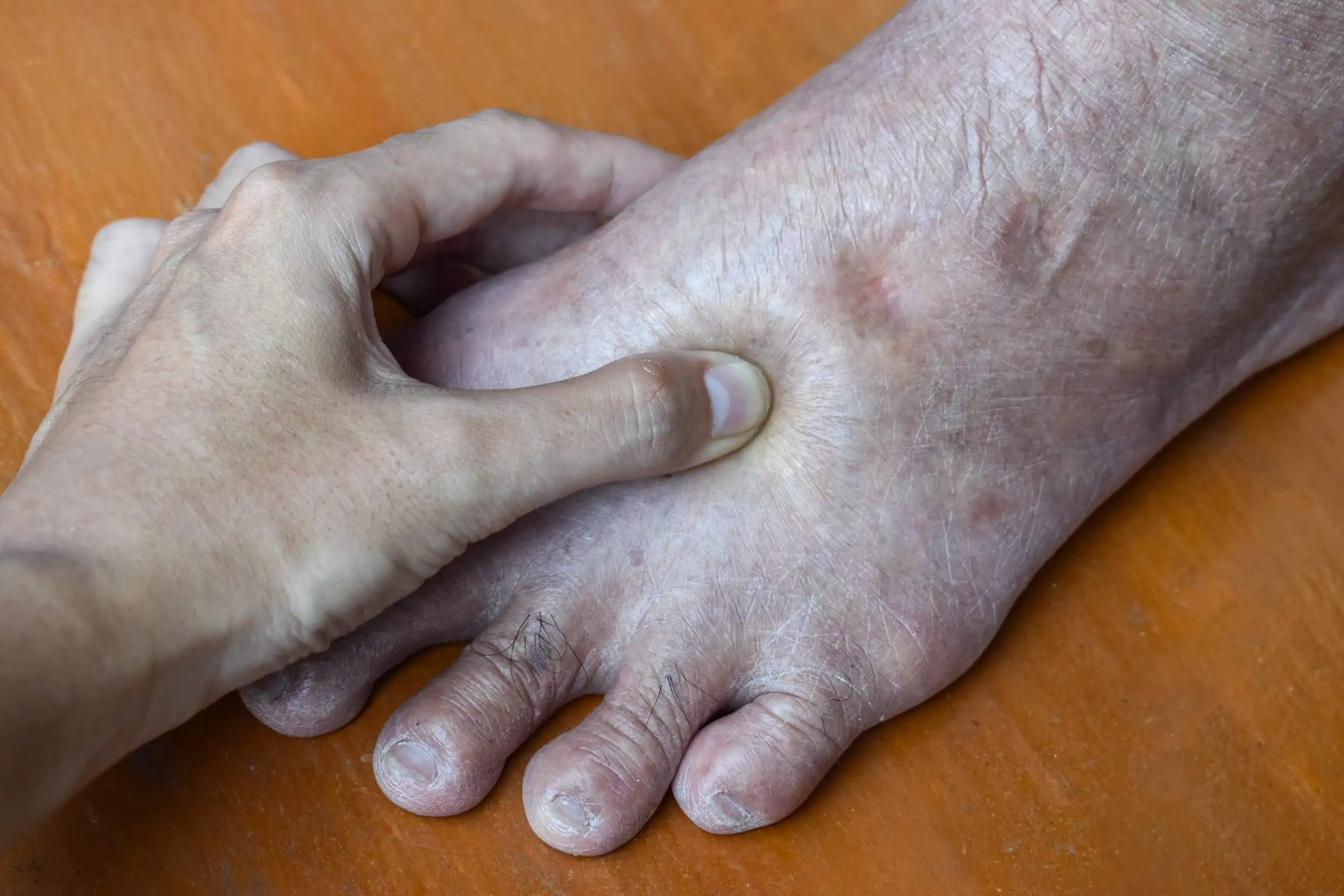The Health Benefits of Couch Grass and its Contraindications


Reviewed and approved by the pharmacist Franciele Rohor de Souza
Couch grass, whose scientific name is Cynodon dactylon, is a plant that belongs to the grass family, which includes wheat, oats, and corn. It can reach 40 centimeters in height and is characterized by rhizomatous stems, rigid, flat, and somewhat hairy leaves, as well as purple flower spikes.
It often grows in European soils, although it’s also widespread in Africa, the Middle East, and parts of South America. It’s quite valued in gardening, as it covers lawns with its green and is quite resistant.
However, beyond this, its rhizomes are used in natural medicine due to their composition and properties. These stand out mainly for their content of mineral salts, as well as fatty acids and antioxidants. Below, we’ll tell you all about its main uses and some contraindications.
The main active compounds of couch grass
There are manywho do not know couch grass beyond its ornamental uses. The truth is that its rhizomes are harvested to elaborate home remedies and supplements, in combination with other plants. The reason? They concentrate active substances with pharmacological properties.
As detailed in a publication in the Journal of Food Science and Technology, its main compounds are the following:
- Palmitic acid
- Linoleic acid
- Methyl esters (ethyl palmitate, ethyl linoleate, and ethyl oleate)
- Dihomo-γ-linoleic acid
- 5-hydroxymethylfurfural
- Maltol
- Retinol
- Phytol
In addition, it contains glycosides, potassium salts, and fructans, which have an impact on its health properties. To be more precise, it’s attributed to anti-inflammatory, diuretic, depurative, antioxidant, and hypoglycemic activity.
However, many of these properties are not yet supported by science. And although many people use couch grass as a natural medicine, it should be used with caution, especially if there are any underlying diseases.
We think you may also enjoy reading this article: Five Medicinal Plants to Manage the Pain of Rheumatoid Arthritis
The benefits of couch grass for health
In traditional medicine, couch grass has been used as an adjunct to improve kidney and metabolic health. However, to date, not enough research has been done to support its properties.
Some available studies were conducted in the laboratory and on animals, so there’s still a need to investigate its effects on human health. Anyway, we’ll take a look at its main medicinal applications.
Kidney health
Given their complexity, kidney diseases should always be approached by a doctor or specialist. Couch grass is not an alternative or first-choice treatment to deal with these problems. However, its antioxidant and diuretic effects may be beneficial in a complementary way.
A study in rats shared in the Avicenna Journal of Phytomedicine found that a minimum dose of 200 mg/kg of C. dactylon was useful in reducing kidney stone formation. This was also evidenced in a previous study, also done in rats, which concluded that an extract of couch grass helped in the prevention of nephrolithiasis, as well as stimulating the elimination of calcium oxalate deposition in the kidneys.
Other kidney health benefits are attributed to it in the popular literature, but these have not been evaluated by science. It is believed to promote the expulsion of excess uric acid and reduce the risk of urethritis, cystitis, and prostatitis.

Fluid retention
A study done on rats, reported in the Research Journal of Pharmacy and Technology, speaks of the diuretic potential of couch grass. The plant has been used for hundreds of years as a stimulant for the elimination of retained fluids in the body.
In the above experiment, researchers observed that oral administration of an aqueous extract of Cynodon dactylon root, at doses of 100 mg, 250 mg, 500 mg, and 750 mg/kg body weight, had diuretic effects.
Thus, it’s believed that it may support the treatment of edematous disorders or non-edematous diseases that are worsened by excess fluids. In itself, diuretic agents boost water and electrolyte homeostasis to control or prevent such health problems.
High blood pressure and diabetes
As a complementary remedy, couch grass has been used to prevent diabetes and high blood pressure. First, it’s attributed to hypoglycemic properties that support the lowering of high blood glucose levels. On the other hand, its diuretic effect and antioxidants may help to control blood pressure.
In relation to this, a study in rats with type 2 diabetes found that extracts of Cynodon dactylon leaves (200 mg/kg/day) and Phyllanthus niruri (600 mg/kg/day), administered orally, favored the control of coexisting diabetes and hypertension.
For the time being, human studies are still needed to verify these effects.
Other possible health uses of couch grass
- Due to its diuretic and anti-inflammatory properties, couch grass remedies are used to reduce the symptoms of arthritis and rheumatic inflammation.
- The phenolic acids and flavonoids present in C. dactylon promote collagenesis, which gives it potential as a wound-healing agent.
- It aids in muscle recovery, fatigue relief, and cramp reduction, due to its potassium content.
- Its anti-inflammatory and depurative properties are associated with liver protection. For this purpose, it is often used in formulas with other plants, such as milk thistle, fumitory, and centaury.
- Its infusion is often used to rehydrate the body and replenish minerals.
The risks and contraindications of common grass
For most healthy adults, couch grass remedies are safe and well-tolerated.
However, cautious and timely consumption is recommended, as too much can be harmful. Now, there are cases in which it’s better to avoid its intake. These include the following:
- Heart disease and hypertension: Although couch grass has shown antihypertensive effects, a doctor should be consulted before trying it as a supplement. In fact, its simultaneous use with medication for this disorder should be avoided.
- Pregnancy and lactation: There are no studies that speak of safety in these conditions. Therefore, it’s best avoided.
- Treatments with anticoagulants, antidepressants, and antidiabetics, among others: It should not be overlooked that the plant can cause interactions with these drugs, which enhances or reduces their action.
- Liver diseases: Although there is talk of some benefits of couch grass for liver health, be careful if there are already underlying liver diseases. Both plants and supplements can lead to complications.

Like this article? You may also like to read: Spinach, Carrots, and Lemon: A Medicinal Drink to Eliminate Toxins
Dosage and mode of consumption
The aerial parts of the plant contain cyanogenic heterosides that can cause intoxication. For this reason, only the rhizome can be used.
The doses of couch grass may vary according to its presentation. Often, liquid extracts or tinctures suggest taking 30 drops a day, diluted in water or juice. It’s also available in powdered form for infusion. Thus, 3 grams are consumed per cup of 250 milliliters.
Decoctions can be ingested alone or in combination with other diuretic plants. This is usually repeated 2 or 3 times a day. In any case, it’s advisable to ask the herbalist about the quantities and the maximum period of consumption.
Here are some herbal combinations with couch grass are the following:
- To reduce high blood pressure: Rhizome of couch grass, corn silk, linden, horsetail, and fennel. Mix 10 to 20 grams of each plant. Then, take a spoonful of the mixture and add it to a cup of boiling water. After 10 minutes, it can be consumed.
- A remedy for kidney stones: To enhance the diuretic capacity of the plant, couch grass rhizome is combined with Arenaria, dandelion, meadowsweet, oats, and fennel. First, an infusion is made with 20 g of grama and dandelion. Once ready, it’s combined with the other plants. A cup can be taken after each main meal.
What to remember about couch grass
Couch grass (Cynodon dactylon) has interesting medicinal applications as a diuretic, anti-inflammatory, antihypertensive and remineralizing agent – particularly its rhizome. However, to date, there have not been enough studies in humans to corroborate the properties attributed to it.
Therefore, this is an herbal remedy to be used sparingly, only in a timely and complementary manner. For no reason can it substitutes any treatments prescribed by a doctor. Nor should it be a first-choice treatment.
If there are pre-existing diseases or if you’re taking any type of medication, it should be the health professional who determines whether its consumption is safe for you. Keep this in mind!
All cited sources were thoroughly reviewed by our team to ensure their quality, reliability, currency, and validity. The bibliography of this article was considered reliable and of academic or scientific accuracy.
- Mozafari AA, Vafaee Y, Shahyad M. Phytochemical composition and in vitro antioxidant potential of Cynodon dactylon leaf and rhizome extracts as affected by drying methods and temperatures. J Food Sci Technol. 2018 Jun;55(6):2220-2229. doi: 10.1007/s13197-018-3139-5. Epub 2018 Apr 25. PMID: 29892123; PMCID: PMC5976607.
- Golshan A, Hayatdavoudi P, Hadjzadeh MA, Khajavi Rad A, Mohamadian Roshan N, Abbasnezhad A, Mousavi SM, Pakdel R, Zarei B, Aghaee A. Kidney stone formation and antioxidant effects of Cynodon dactylon decoction in male Wistar rats. Avicenna J Phytomed. 2017 Mar-Apr;7(2):180-190. PMID: 28348973; PMCID: PMC5355823.
- Atmani F, Sadki C, Aziz M, Mimouni M, Hacht B. Cynodon dactylon extract as a preventive and curative agent in experimentally induced nephrolithiasis. Urol Res. 2009 Apr;37(2):75-82. doi: 10.1007/s00240-009-0174-8. Epub 2009 Jan 29. PMID: 19183977.
- S., Satish. (2008). Study on the Diuretic Activity of Cynodon dactylon root stalk Extract in Albino Rats. Research Journal of Pharmacy and Technology. 2. 338-340.
- Arumugham VB, Shahin MH. Therapeutic Uses Of Diuretic Agents. [Updated 2022 Jun 5]. In: StatPearls [Internet]. Treasure Island (FL): StatPearls Publishing; 2022 Jan-. Available from: https://www.ncbi.nlm.nih.gov/books/NBK557838/
- Sadki, C., Hacht, B., Souliman, A., & Atmani, F. (2010). Acute diuretic activity of aqueous Erica multiflora flowers and Cynodon dactylon rhizomes extracts in rats. In Journal of Ethnopharmacology (Vol. 128, Issue 2, pp. 352–356). Elsevier BV. https://doi.org/10.1016/j.jep.2010.01.048
- Bharati, Deepak. (2016). Comparative evaluation of antidiabetic antihypertensive activity of Cynodon dactylon L. and Phyllanthus niruri L in ratswith simultaneous type 2 diabetic and hypertension. Der Pharmacia Lettre. 8. 255-263.
- Sindhu G, Ratheesh M, Shyni GL, Helen A. Inhibitory effects of Cynodon dactylon L. on inflammation and oxidative stress in adjuvant treated rats. Immunopharmacol Immunotoxicol. 2009;31(4):647-53. doi: 10.3109/08923970902947325. PMID: 19874236.
- Biswas TK, Pandit S, Chakrabarti S, Banerjee S, Poyra N, Seal T. Evaluation of Cynodon dactylon for wound healing activity. J Ethnopharmacol. 2017 Feb 2;197:128-137. doi: 10.1016/j.jep.2016.07.065. Epub 2016 Jul 22. PMID: 27457694.
- Singh SK, Rai PK, Mehta S, Singh RK, Watal G. Curative effect of Cynodon dactylon against STZ induced hepatic injury in diabetic rats. Indian J Clin Biochem. 2009 Oct;24(4):410-3. doi: 10.1007/s12291-009-0073-3. Epub 2009 Dec 30. PMID: 23105869; PMCID: PMC3453047.
This text is provided for informational purposes only and does not replace consultation with a professional. If in doubt, consult your specialist.








